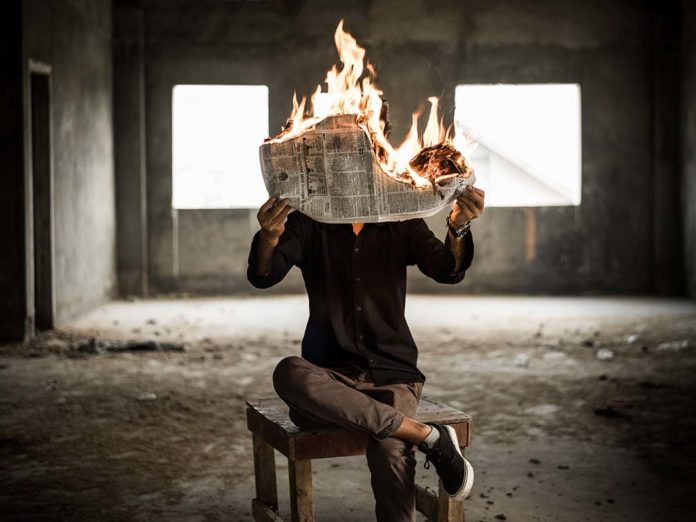Almost two years ago to the day, I wrote an article for The Cascade that I thought was a pretty clever and justified take on what was (at that time) a negative couple of weeks in the news. At the risk of committing the mortal sin of self-reference, looking way back at that little chunk of recorded personal history is an awful, hilarious exercise which I dragged myself through, and it has me thinking.
In Jan. 2020, I described an environment of overwhelming fear and uncertainty brought on by news reports — all with a tone that has aged like milk. To save you the effort, I listed out some current events that “Jan. 2020 me” felt perfectly justified throwing words like “Armageddon” around over. What a riot.*
You know it’s bad when we can separate eras of an ongoing global crisis by the different phases of humour we all used to cope with. For example, if this were Jan. 2021, it would be very fresh and topical for me to write something like: “What was university education like before this all-encompassing doomsday cloud rolled in over our collective heads?”or “I’m still trying to process March 2020 — and somehow it’s 2021? Time really has lost all meaning!” or “What’s the deal with the American electoral college anyways?”
These may all seem trite and dated now, but in Jan. of 2021, this sort of schtick would have killed – you’ll just have to trust me.
But now we are here, in Jan. 2022 — and we are a few weeks into yet another semester disrupted by circumstances. The Global News streaming app has long replaced the lo-fi girl as my go-to white noise for studying, the word “unprecedented” in the subject lines of emails has become a twisted oxymoron, and I’ve developed a Pavlovian response to UFV text alerts.
After the catastrophic flooding in the Fraser Valley forced students online for another semester last term, I made a joke to a friend that I looked forward to reading week 2022 being disrupted by an earthquake or a tsunami. That same friend texted me a screen shot this week of the tsunami warning that had lit up her phone as a result of a volcanic eruption near the Tonga Islands.
Note to self: must stop invoking disasters for the sake of a joke.
But seriously, does anyone remember how we got anything done without the threat of environmental, economic, or personal danger looming constantly over us all? If you are anything like me — and it seems like at least some Canadian post-secondary students are — online university classes are isolating, more difficult, and extremely frustrating in ways that a socially distanced trivia night can’t shake off. Hopefully by the time this prints, we will all be back in classrooms together, but the fatigue is real and I have learned my lesson on trying to plan anything more than a few hours in advance. To quote a sort of underground, experimental indie flick from the 80’s, “it’s not the years, it’s the mileage,” and it sure feels like we have been racking up the damn odometer lately.
But beyond the fatigue, as I revisit the perspective of Jan. 2020 me, there is something else that I think is worth reexamining. Those first few months of the pandemic felt like an onslaught of things demanding our attention, pushing us to ask ourselves constantly, ‘what happens next?” Nobody seemed to have an answer. I remember the feelings of doubt and fear, and I am struck by how different things feel now.
I’m honestly too tired and too run down to draw sweeping conclusions or wring my hands anymore. The fatigue of trying to maintain a functional personal and academic life amid the last two years is starting to catch up with many of us. It is a weariness that is painfully real and pointless.
When living through something challenging, I think it is human nature to look for patterns. Spend too long indulging in this exercise though and it’s easy to work yourself into a cynical spiral as the “challenging something” drags on and on. Before you know it, you may even start to buy into the contagious idea that you are the only one feeling this way, and if there’s one conclusion I’ve come to over the last two years, it’s that this self-imposed emotional distancing is destructive and dangerous.
All I know is that I don’t want to be cynical, glib or self pitying about these things anymore; radical acceptance is the new doom scrolling, and being at peace with not knowing “what happens next” is my new modus operandi. Maybe we’ll meet back here in Jan. 2023 and compare notes.
*NOTE: Not an actual riot. That was Jan. 2021.
Image: Nijwam Swargiary / Unsplash
The Managing Editor is responsible for providing support to the Executive Editor in respect to editorial workflow and administration, and an educational resource for sectional editors and volunteers. The Managing Editor is also responsible for internal editorial and volunteer relations.



